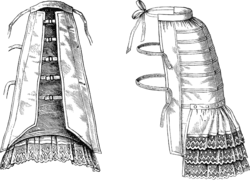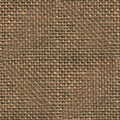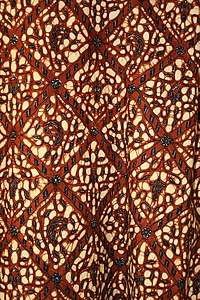Dimity
Dimity is a lightweight, sheer cotton fabric, used historically, having at least two warp threads thrown into relief to form fine cords. It is a cloth commonly employed for bed upholstery and curtains, and usually white, though sometimes a pattern is printed on it in colors. It is stout in texture, and woven in raised patterns.[1] Originally dimity was made of silk or wool, but since the 18th century it has been woven almost exclusively of cotton.

A palampore is a dimity made in India and used for bed coverings.[2]
Name
Dimity is also a girls' name, which, while still uncommon, is most popular in Australia.
Article of clothing
A dimity was a bit of draping worn by performers of the Poses Plastiques, which was an early form of strip tease. Performers wore flesh colored silk body stockings and a dimity to give the illusion of modesty.
Theatrical references
- In the Finale of Act I of The Pirates of Penzance, the Pirates sing, "Pray observe the magnanimity we display to lace and dimity".
- At the conclusion of The Insect Play, by brothers Karel and Josef Čapek and translated by Paul Selver, a group of school children sing: "As I went down to Shrewsbury Town, / I saw my love in a dimity gown: / And all so gay I gave it away, / I gave it away—my silver crown."
References
-

- "palampore". Dictionary.com.


.svg.png)